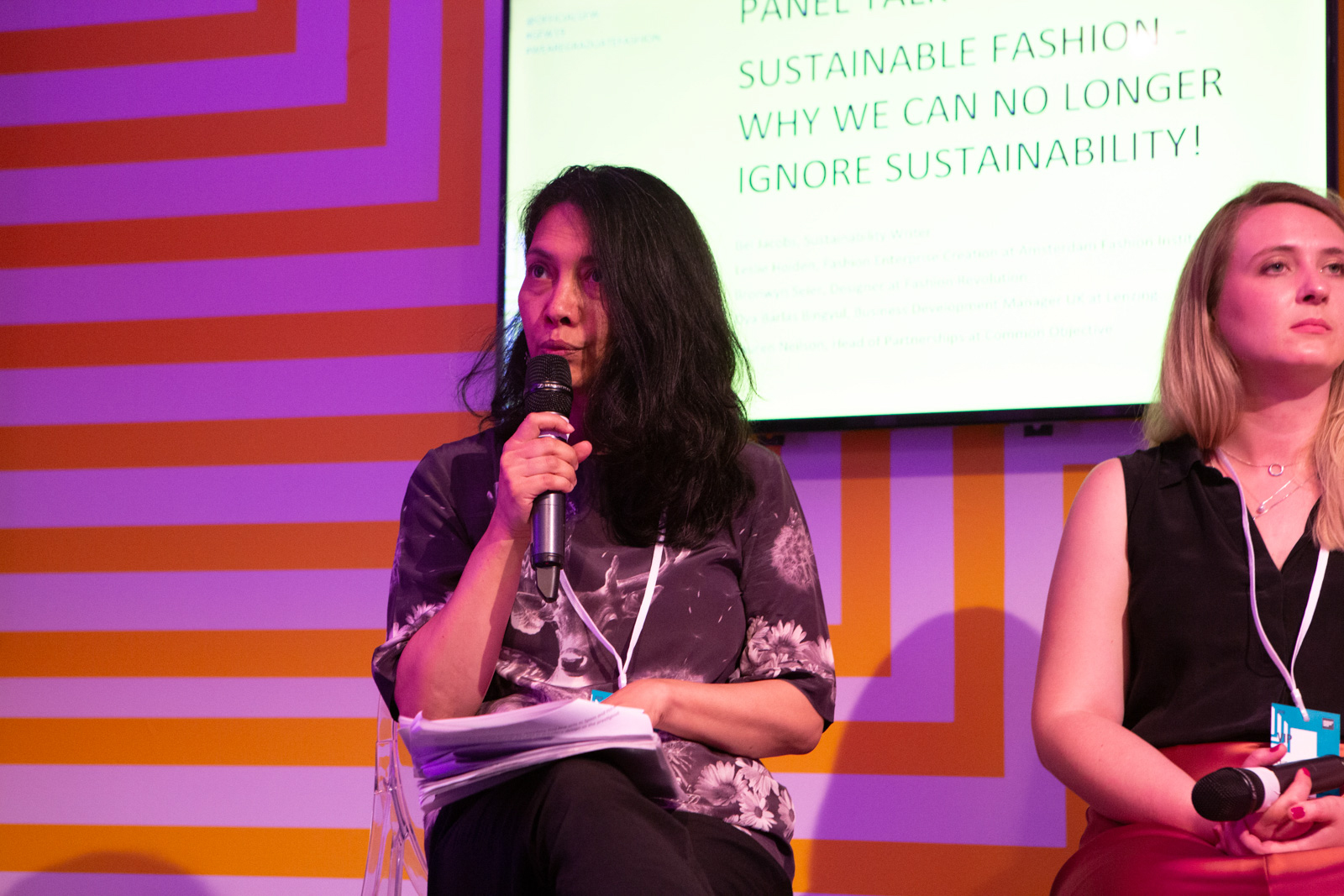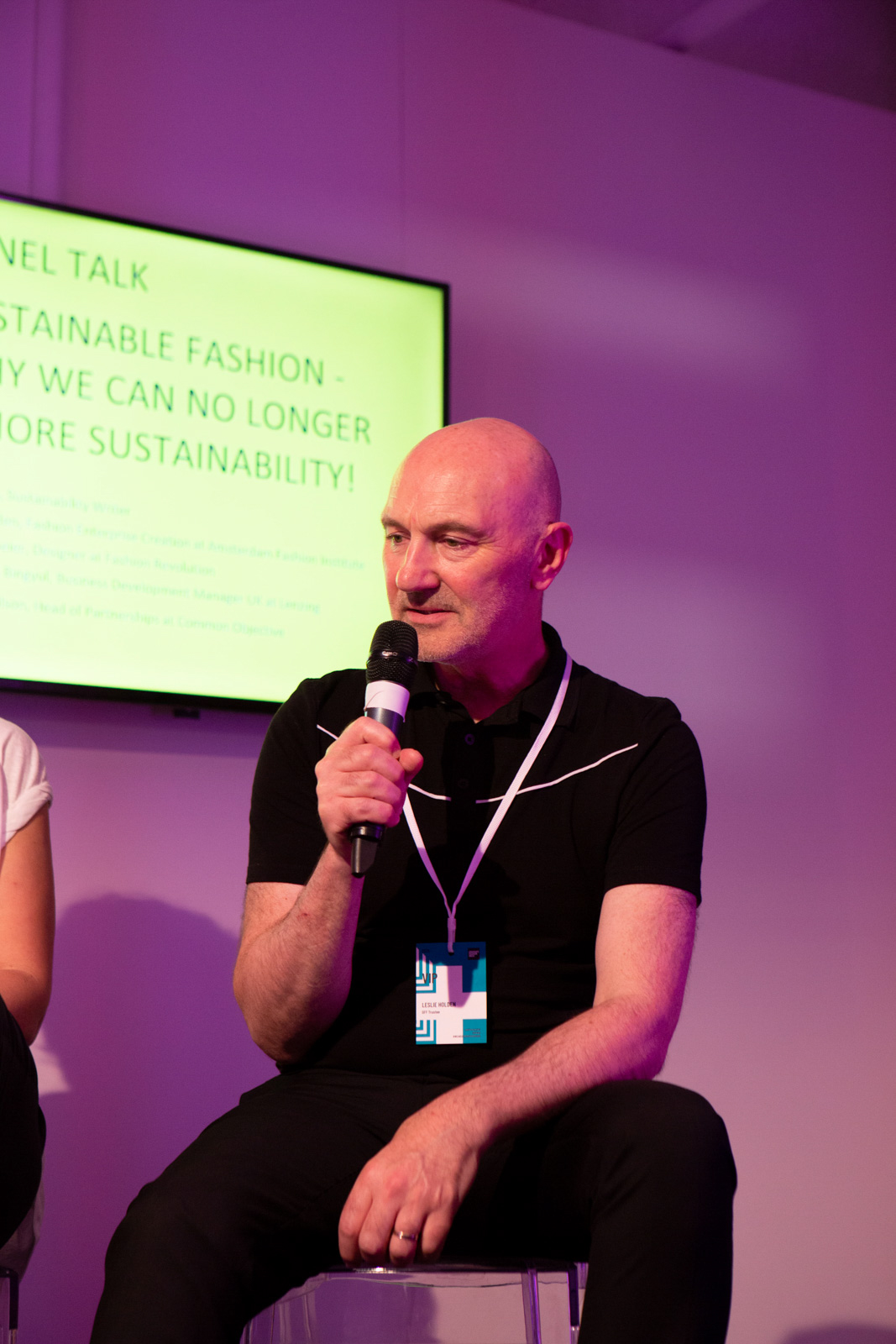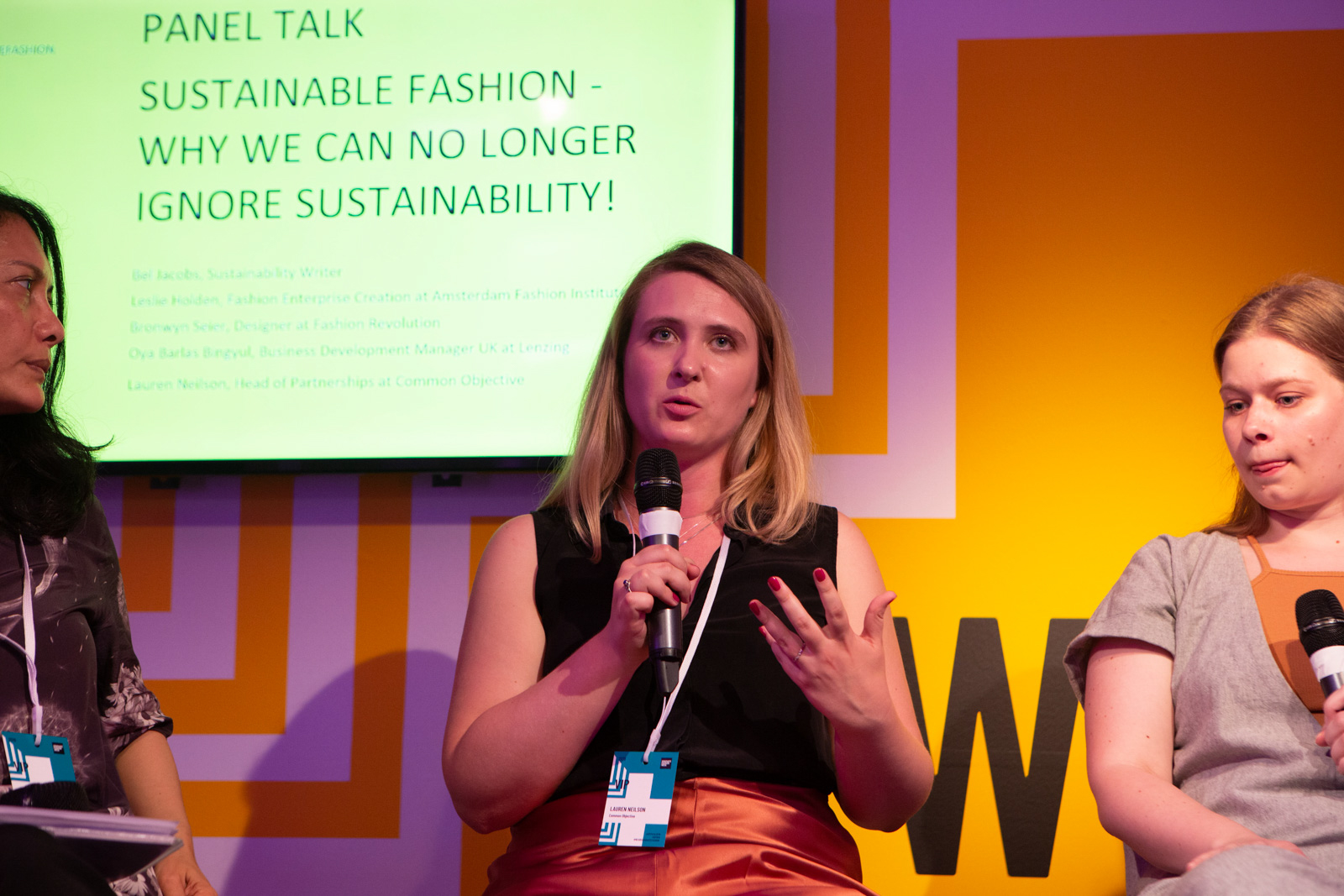Sustainability Writer, Bel Jacobs began the panel, Sustainable Fashion — Why We Can No Longer Ignore Sustainability, by giving a quick rundown on the effects that global warming has had on our planet in recent years. The fashion industry is the second largest polluter, and with clothing production having doubled in the past 15 years, it’s clear that sustainable fashion is key to helping the planet.
Bronwyn Seier is a designer at Fashion Revolution, who are responsible for reaching the public with campaigns such as Loved Clothes Last and #WhoMadeYourClothes. Aimed at encouraging the public to shop more responsibly and take care of their clothes to ensure their longevity, Seier says campaigns like these are imperative to getting the public to consider a more ethical and sustainable way of buying.
Education plays a huge part in changing the course of fashion waste, and Leslie Holden, Head of Fashion Enterprise Creation at Amsterdam Fashion Institute, began assessing students’ work on it’s sustainable impact and encouraging masters students to come up with a sustainability-focussed company as part of their course.
It’s not just students’ designs that should take on a more sustainable approach; Oya Barlas Bingyul, Business Development Manager at Nezing, wants to encourage consideration of resources. The question “Why do we waste?” is asked, they are huge fans of schemes that take the fabric scraps from the floors, reduce them down to a pulp and recreate a whole new fabric from them, therefore eliminating waste and helping to repurpose everything.
Common Objective’s Head of Partnerships, Lauren Neilson, works with larger organisations who are constantly addressing ways in which they can be more sustainable with their products. She also encourages graduates to not be afraid of speaking up; “Students actually have quite a strong voice in big businesses, and always ask the most interesting questions.” Using your voice to make change within a business, or even just questioning why a company uses so much paper for photocopying, can help have a greater overall impact in the industry.
Written by Faith Richardson
Photography by Becky Mukerji






